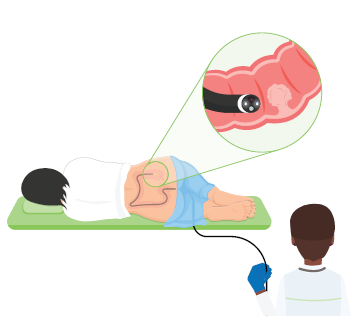Colon cancer is one of the most common cancers in the United States, but it is often treatable when detected early. Understanding the basics of colon cancer, including its causes, symptoms, and treatment options, can help you make informed decisions about your care. Here is more information on colon cancer, colon cancer surgery, and the role chemotherapy plays:
What Is Colon Cancer?
Colon cancer develops when cells in the colon, also known as the large intestine, grow uncontrollably. The colon is part of the digestive system, responsible for processing waste and absorbing water from digested food. Cancer typically begins as small, benign growths called polyps, which can develop into malignant tumors over time.
The disease can occur anywhere along the colon’s length, from the cecum to the rectum. Early detection may significantly improve treatment outcomes. Regular screening can identify polyps before they develop into cancer, making prevention and early intervention beneficial. In cases where cancer is detected, colon cancer surgery can be a highly effective treatment option.
What Are the Causes and Symptoms?
Several factors increase the risk of developing colon cancer. Age is a primary risk factor, with the majority of cases occurring in individuals aged 50 and older. Family history of colon cancer or inflammatory bowel diseases like Crohn’s disease or ulcerative colitis also elevates risk. Lifestyle factors, including a diet high in red meat, smoking, excessive alcohol consumption, and sedentary behavior, contribute to increased risk.
Symptoms of colon cancer can vary depending on the tumor’s location and size. Common symptoms include persistent changes in bowel habits, such as diarrhea or constipation lasting more than a few days. Blood in the stool, whether bright red or dark and tarry, may indicate the presence of cancer. Abdominal discomfort, cramping, or pain can occur as the tumor grows.
What Does Colon Cancer Surgery Entail?
Surgery is often the primary treatment for colon cancer, particularly in early stages. The type of surgery depends on the location, size, and stage of the tumor. The goal is to remove the cancerous tissue while preserving as much healthy colon as possible.
Colectomy involves the removal of the affected portion of the colon. During a partial colectomy, the surgeon removes the cancerous section along with nearby lymph nodes and healthy tissue margins. The remaining healthy sections of the colon are then reconnected, allowing normal bowel function to resume.
An ostomy is a surgical procedure that creates an opening in the body to allow waste to exit when the usual route is not possible. This opening, called a stoma, is typically made on the abdomen and connects to a collection bag for waste management. Ostomies are used to treat colon cancer when there is not enough healthy tissue for a reconnection.
What Role Does Chemotherapy Play?
Chemotherapy uses medications to destroy cancer cells or prevent their growth and spread. It may be recommended before surgery to shrink tumors, after surgery to eliminate remaining cancer cells, or for advanced cancer that has spread to other organs. The timing and duration of chemotherapy treatment depend on the stage of cancer and individual circumstances. Treatment typically involves cycles of medication administration followed by rest periods to allow the body to recover.
Know What To Expect
Understanding colon cancer and its treatment options provides a foundation for making informed decisions about your care. Surgery and chemotherapy are established treatments that help people manage colon cancer. Your medical team will work with you to develop a personalized treatment plan based on your specific situation and cancer characteristics. Consult your healthcare provider for more information.

